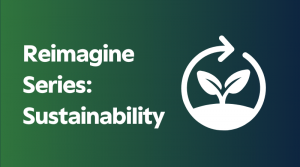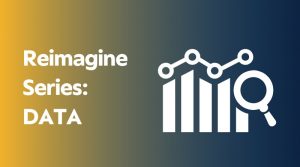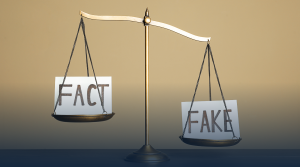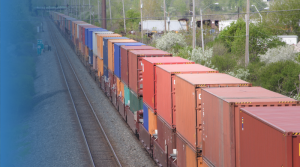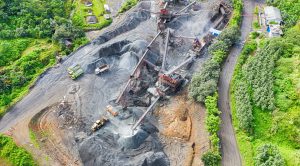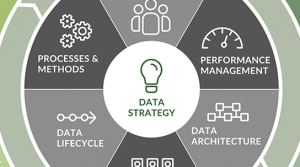We invite you to explore in this section a selection of the research carried out by our more than 400 researchers.
AllBusiness and OperationsStrategy, Development, and MarketingDigitalization and TechnologyEconomy and SocietyFinance and InsuranceLeadership, Behavior, and HRESG
- Environmental impact: the hidden side of Swiss financeSwitzerland has relatively modest CO₂ emissions within its borders. But if we follow the trail of money it invests abroad, the picture becomes bleaker. Every…
- Why we still need line managers, but the right onesAs organizations experiment with flatter structures and question the relevance of hierarchy, a familiar question returns: Do we still need line managers? This is the question…
- Décrypté: extracts from research at HEC Lausanne in four videosIn this second season of Décrypté, HEC Lausanne features four experts who embody its strategic research areas: innovative sustainability, economics insights, health and society, and…
- What tools help understand the economic situation?Décrypté series Episode 4 – Which areas of expertise, centers, and institutes make up the research ecosystem of HEC Lausanne? How do they concretely help…
- The impact of digitization on the economyDécrypté series Episode 3 – Which areas of expertise, centers, and institutes make up the research ecosystem of HEC Lausanne? How do they concretely help…
- XXL Inheritance Tax? A Key Topic for SwitzerlandThe Swiss will cast a public vote on whether to introduce the first ever federal inheritance tax. This will be a levy on inheritance and…
- Actuarial Science Series – Retirement: back to the future?Climate change, poverty and ageing populations can create huge risks for society and the insurance sector. In a new series we look at how research…
- Corporate legitimacy and reputation – Décrypté, Episode 2Which areas of expertise, centers, and institutes make up the research ecosystem of HEC Lausanne? How do they concretely help address today’s economic, social, technological,…
- New video series “Décrypté”, exploring HEC Lausanne researchersWhat are the main areas of expertise, centers, and institutes that make up HEC Lausanne’s research ecosystem? How do they contribute to addressing today’s economic,…
- Questions over U.S. dollar supremacyEconomists, Professors Philippe Bacchetta and Gianluca Benigno explore the dominance of the American dollar. Erratic U.S. trade policies, a significant fiscal deficit and threats to…
- Actuarial Science series: How to insure climate extremes ?Climate change, poverty and ageing populations can create huge risks for society and the insurance sector. In a new series we look at how research…
- Marketing digest: Calibrating the influence of user-generated contentSocial media is transforming how customers interact with companies globally, where user-generated content is having a massive influence on what we buy. But how people…
- Actuarial Science series: Tackling global poverty through insurance Poverty, climate change and ageing populations can create huge risks for society and the insurance sector. In a new series we look at how research…
- Actuarial Science series: Calibrating the cost of careAgeing populations, climate change and poverty create huge risks for society and for the insurance sector. In this new series we look at how Actuarial…
- Reimagine series: SustainabilityIn Spring 2025, we released a podcast series on the theme of sustainability. In this last series, three researchers from HEC Lausanne explore the human,…
- HEC Lausanne (UNIL), the University of Zurich and UNHCR join forces to meet the needs of refugeesResearch & Innovation – As soon as they arrive in a host country, refugees face urgent questions: how to access healthcare, get social assistance, enroll…
- Reimagine Series : DataAt the beginning of 2025, we published a series of articles on the topic of data that we invite you to (re-) discover today. Three…
- Reimagine Series : HealthcareIn the fall of 2024, we published a series of articles on the topic of healthcare. We invite you today to (re-) discover different perspectives…
- Reimagine Series : Digital Revolution TrendsIn the spring of 2024, we published a series of podcasts on the topic of Digital Revolution Trends. We invite you today to (re-) discover…
- Reimagine Sustainability: Smarter and More Inclusive MobilityWelcome to the final episode of our Reimagining Sustainability podcast series! Can sustainable mobility be joyful, inclusive, and transformative? In this final episode of the…
- Why some underperforming leaders still rise to the top of businessThe issue It’s a question that has long puzzled researchers: why do so many business leaders rise to power despite poor performance? One would assume…
- 3 projects in video that explore and support ecological and social transformationFunded through UNIL’s STRIVE program, these interdisciplinary projects, led in part by researchers from HEC Lausanne, explore practical levers for transition in mobility, collective narratives,…
- Reimagine Sustainability: How to Rethink Sustainability in Luxury?Welcome to the second episode of our Reimagining Sustainability podcast series! Luxury is often seen as the opposite of sustainability, but what if it could…
- Understanding Switzerland’s real estate transition through building permitsHow can we concretely assess the Swiss real estate sector’s progress towards carbon neutrality? By using building permit data. This is the aim of the…
- How to combat fake news and disinformationFake news is an insidious and global epidemic. Intentionally posted false content, referred to as disinformation, is now widespread across digital and traditional media formats.…
- Polarization, Identity, and Sustainability: An Evolutionary PuzzleWelcome to our new Reimagining Sustainability podcast series! Sustainability is more than just making greener choices—it’s deeply tied to identity and societal divides. Why do…
- Reimagining Data series: Open source and cloud platforms, the winning duo to boost your businessIn the third post of reimagining data, our academics show that organisations can leverage data by combining cloud computing and open-source software to achieve a…
- Reimagining Data series: Innovating with data has multiple benefitsIn the second post of reimagining data, our academics look at how data innovations in one area of a business can help transform other areas.…
- Sustainability challenges facing real estate investment vehicles in SwitzerlandThe Center for Risk Management Lausanne (CRML) at HEC Lausanne (UNIL) highlights the sustainability challenges facing Swiss real estate investment vehicles (REIVs) in its new…
- AI as a Tool for Human Skill Development[source : Edge Magazine] Can artificial intelligence help us become better leaders, communicators, and collaborators? While AI is often seen as a threat to human…
- Reimagine series: Data – Unleashing the power of organisational dataIn the first post of reimagining data, our academics at HEC Lausanne (UNIL) look at the power of data, which is fast evolving from a…
- How Trade Sanctions Reshaped Russia’s EconomyDzhamilya Nigmatulina, Assistant Professor of Economics at HEC Lausanne (UNIL), recently shared her insights on the economic impact of the 2022 trade sanctions on Russia…
- Reimagine Series: Healthcare – Shadow health data is a significant threatIn the fourth post of reimagining healthcare, our academics look at data privacy and health. The volume of health data is growing, the healthcare industry…
- Reimagine Series: Healthcare – Invest in health and reduce social unrestIn this third post of reimagining healthcare, Prof. Dominic Rohner, HEC Lausanne (UNIL) looks at how conflict is linked to the health of a population.…
- Reimagine Series: Healthcare – Coping with the shifting burden of diseaseIn the second post of our series, reimagining healthcare, Prof. Jürgen Maurer, HEC Lausanne (UNIL) focuses on the epidemic of non-communicable diseases (NCDs) such as…
- Reimagine Series: Healthcare – Is it time to put a price on life ?In a new series we look at how our researchers are rethinking some of the biggest challenges that humanity faces. Healthcare is a big issue.…
- PRESS index: A new standard for sustainable real estate investmentThe Center for Risk Management at Lausanne (CRML) at HEC Lausanne (UNIL) introduces the PRESS index (Public Real Estate Sustainability Switzerland), the first public sustainability…
- Greenwashing – A form of cheating in economicsFinance Prof. Éric Jondeau from HEC Lausanne addresses the issue of greenwashing in a new podcast series by the University of Lausanne (UNIL), titled “Are…
- What is the peace formula for curbing armed conflict and achieving lasting peace?Dominic Rohner, Professor of Economics at HEC Lausanne (UNIL), recently joined a VoxTalks Economics podcast to explore the crucial role of economics in fostering and…
- Age diversity statements change workplace behaviorThe issue The workforce across the developed world is now older than at any point in history. In the last decade, the average labour-force participation…
- Is it time to rethink Big Tech’s acquisition model?The issue The proportion of software startups that are acquired instead of going public has grown over the last few decades. Big Tech, with large…
- Why do some organizations turn to the dark side?Immoral behavior and corporate scandals: Guido Palazzo, Professor of Business Ethics at HEC Lausanne (UNIL), has made this his hobbyhorse for decades. Through his research,…
- Managing the Grand Challenges with innovation and technologyHow can we help international organizations become more effective in managing major challenges (such as poverty or access to healthcare)? What are the levers that…
- ESG practices in the Swiss real estate market: new evaluation of 128 investment vehiclesThe Center for Risk Management at Lausanne (CRML) at HEC Lausanne (UNIL), in collaboration with Quanthome SA, has published the latest results of its tool…
- For an analysis of peace factors in the worldHow can we avoid violence, war and armed conflict? What factors can help foster peace? Discover the fascinating work of Prof. Dominic Rohner in the…
- How to model extreme eventsWelcome to our new series of videos “Décrypté”, immersing you in the pioneering spirit of HEC Lausanne and its researchers. What research topics are explored…
- Finfluencers: lucky trend setters or skilled financial experts?Welcome to the latest episode of our podcast series: Digital Revolution Trends! Join us as we explore the intriguing world of financial influencers, also known…
- Successfully deploying AI in business needs good design principlesAI technologies, particularly generative AI, are growing in power, use and utility. As tools become democratised and affordable there’s a need for good design principles,…
- HEC Lausanne researchers will assess the risk of collisions in spaceThe number of commercial satellites in low Earth orbit continues to grow, increasing the risk of space debris. Assessing the risk of conjunctions – those…
- Are ESG Criteria effective?In this series of podcasts produced by Enterprise for Society Center (E4S), discover different perspectives on ESG criteria from two professors at HEC Lausanne (UNIL).…
- Cyberbullying and the impact of personal information disclosureWelcome to the second episode of our Digital Revolution Trends podcast series! Delve into this insightful conversation with Dr. Kavous Salehzadeh Niksirat on the critical…
- How can recalibrating models shape climate change mitigation?Simon Scheidegger is an Associate Professor of Economics at HEC Lausanne (UNIL) and E4S researcher. In this research snapshot, Prof. Scheidegger explores climate mitigation strategies.…
- Data inputs must be the focus of AI and its regulationThe world’s first ever law on artificial intelligence or AI looks set to be adopted by the European Union parliament this year. The AI Act…
- Why do we need better end-of-life literacy?End-of-life health literacy matters. In Switzerland, Europe, and much of the developed world, populations are ageing. At the same time, more people are living longer…
- Netiquette as Digital Social NormsWelcome to our new Digital Revolution Trends podcast series! Digital media impacts almost every aspect of life today. It brings with it convenience and a…
- Why does the U.S. dollar remain supreme?If you think that the U.S dollar is losing its pre-eminence worldwide, think again. The international monetary system still functions through the so-called Imperial Circle,’…
- 5 Pillars for Democratizing Data at Your OrganizationSource : Original and full article published in Harvard Business Review With a growing need to leverage data & analytics for competitive advantage, and Generative AI…
- How to increase the chances of obtaining financing from a venture capital firm?Professor at HEC Lausanne, Jeffrey S. Petty, and his co-authors Marc Gruber, EPFL and Dietmar Harhoff, Max Planck Institute, leverage unique access to VC deal…
- Can NFTs Support Organizing in the Future of Work?Emerging technologies are constantly evolving and shape how we organize work within organizations. Building upon design principles of decentralized autonomous organizations, the Point of View article…
- Does Clean Energy Mean Expensive Energy?Sébastien Houde is an Associate Professor of Environmental Economics at HEC Lausanne (UNIL). In this episode of Perspectives by Enterprise for Society Center (E4S), solutions…
- How to help new entrepreneurs find and buy a business in Europe?First-time entrepreneurs can use the ‘search fund’ model, developed in the US, to help them find and buy a business in Europe. But they must…
- Launch of a new method to assess the ESG practices of Swiss real estate fundsIn the pursuit of 2050 global sustainability goals, the real estate sector emerges as a critical player, contributing nearly 40% to Switzerland’s total energy consumption.…
- E4S : New research “The Swiss market of green bonds: breaking down the barriers to scale”Green bonds can foster financial flows towards environmental projects and are subject to a growing interest in Switzerland. Green bonds are used to finance projects…
- Unravelling the paradox: Green preferences sustain greenwashingWe often hear that we as consumers have the responsibility and the power to support reaching the Sustainable Development Goals with our consumption decisions. This…
- Why building a nation mattersFrom Syria to Libya, Somalia to Yemen, more than 50 nations are failing states. This is a trigger for mass migration, conflict, extremism or the…
- MICRO vs. MACRO: Why is climate change also an economic question?Get ready for an eye-opening discussion! In this video, our experts Sébastien Houde and Brendan Berthold tackle the question: Why is climate change also an…
- Private Equity: Greenwashing GaloreWe are awash with ESG slogans – companies often include a glorified caption of how they care about their employees, environment and our children’s future.…
- Price and prejudice: Asylum seekers and housing rents[Podcast] Opposition to asylum seekers has become a political and social media hot button issue in every high-income country. But does their presence also depress…
- Buzz around ChatGPTNo need to introduce ChatGPT, the new technological star that talks to you as a human would via Whatsapp or Telegram. Whatever the subject, the…
- Importance of our connection to nature to engage in pro-environmental actionsAlmost three planet Earth would be needed if everyone lived like the Swiss population. The imbalance between Switzerland’s higher ecological footprint and our planetary boundaries…
- Pricing and restoring natural capital: a case study on mining and vegetationNatural resources often come for free to the companies that use them. Natural resources have a large economic value. For example, pollination enables between US$235…
- Immersive virtual reality helps to promote pro-environmental behavioural strategiesThe issue The main challenge of the 21st century is to reduce greenhouse gas emission. The adoption of pro-environmental behaviours contributes to tackling climate change.…
- Improving CSR Reporting and reducing greenwashing – a new approachIn their paper ‘The end of greenwashing? A Renewed Infrastructure for CSR Information in the New Normal‘?’, Janet Su, PhD and Prof. Gaia Melloni, both…
- The diminishing CO2 impact of Swiss real estate investmentsGreenhouse gas emissions from buildings owned by Swiss real estate investment vehicles fell by around 10% in 2021 on the previous year. According to the…
- Improving the performance of bond portfolios by combining machine learning and economicsFrom healthcare to marketing, IT to transport, artificial intelligence and machine learning are disrupting the business world. Financial services is no exception. Making more sense…
- Connected watches and privacy: risks, dangers and data protectionThe issue While devices such as wearable activity trackers or connected watches contribute to a better quality of life, they also raise serious privacy issues.…
- ChatGPT in the world of workIn this new podcast, let’s discuss this subject which is on the forefront with Yash Raj Shrestha, our assistant professor at HEC Lausanne. Yash’s combination…
- Climate Policy Risk and Asset Prices in SwitzerlandFebruary 2023 | Do Swiss investors care about the risks of the ecological transition?
- Swissjobtracker.ch: a new online index of the job market evolutionThe swissjobtracker.ch platform is the result of a collaborative effort between HEC Lausanne at the University of Lausanne, KOF at ETH Zurich and the private…
- Wealth inequality: Parental influence on attitudes to financial risk takingThe Issue Wealth inequality is a major global issue – the richest 10% of the world’s’ population hold some 75% of all wealth. One important…
- The causal effects of public policy on individual behavior“As a result of covid, the job market has changed. […] we have to choose our future job.”
- Evaluating the effectiveness of Urban Low Emission ZonesThe Issue Until electric cars become commonplace, vehicles with internal combustion engines will remain a major contributor to air pollution. The UN predicts that some…
- 180 seconds to talk about research popularizationMaud Goutte, PhD Student in Finance at HEC Lausanne, SFI and MT180 UNIL finalist & Quentin Gallea, researcher and lecturer at Enterprise for Society and…
- Gaming the system: improving fairness in matching marketsThe Issue – Designing fair markets While price is the main mechanism for allocating goods and services in a free market economy, there are some…
- How to Harness Open Technologies for Digital Platform AdvantageOpen Technologies: Why businesses should play “the Digital Commons Ecosystem Game” The issue The next steps of digital transformation will definitively be driven thanks to…
- How much of a risk are we taking with smart homes?The Issue – How do smart technologies create or alter risks in the home Smart homes may sound exciting with new technologies enabling devices that…
- How some websites spy on usThe Issue – Thousands of popular websites covertly harvest personal information typed into forms without users’ consent When you’re filling in a form on a…
- Linkedin for job-seekers : from research to practical insightsProfessor Franciska Krings, expert in workforce diversity and discrimination at HEC Lausanne (UNIL), met Robin van Känel, Director of Ricochets, an agency in Lausanne specialized…
- Regulating digital technologies: Lessons from the GDPRThe Issue – regulating digital technologies Regulators are increasingly enacting laws and putting forward policy guidelines and regulatory proposals for digital markets and the European…
- Taxation of multinationals: what are the new rules of the game?HEC Podcast – Are you interested in the decisions taken at the last G7 and G20 regarding the taxation of multinationals at a minimum rate of at least 15%?
- Left in the dark: Why transparency isn’t always best for institutionalizing corporate responsibilityTransparency is usually seen as integral to corporate responsibility best practice. It allows closer scrutiny of those firms claiming CR credentials. But, if we want…
- Motivation matters: The importance of intrinsic motivation in behavioral change app designDesigning a mobile app to help create lasting changes in behavior is a difficult challenge. New research suggests that a measure of motivation – the…
- Short, simple and assured: Making integrated reporting payIntegrated reporting provides a more holistic representation of a firm’s activities, combining key financial and non-financial information, including environmental and social details. Better still, research…
- Changing behavior: Harnessing the power of social influenceWhether it is trying to increase the welfare of citizens through public policy, or adapting organizational culture to a new business environment, changing behavior is…
- Small numbers, larger mistakes: How number bias affects investor informationAdvice and information provided by stock analysts, such as target prices and recommendations, have a powerful influence on investor decisions. However, new research shows that…
- The economic cycle of fear: Will panic fuel the next global recession?As President Franklin D. Roosevelt famously once observed: “The only thing we have to fear is fear itself”. At the tail of end of an…
- Multimodality, ridesharing, and collaboration: Operations optimization and the future of transportationLike many other sectors, the world of transportation is experiencing a period of profound disruption. From the sharing economy to mobility-as-a-service, autonomous vehicles to solid…
- How the Camorra is cleaning up: A grubby tale of entrepreneurial talent gone to wasteGuido Palazzo, professor of business ethics, highlights a case where entrepreneurial ingenuity has turned environmentally and socially toxic, threatening the health and economic welfare of…
- The Facebook effect: How Facebook browsing shapes the consumer decision making processMarketers are well aware that social media sites can play a role in influencing consumers, whether it is through product endorsement or building customer loyalty,…
- War and peace: The case for power sharingThere has long been an association between politics and violence. Factional disagreements can often lead to prolonged violence. At the same time, there is apparent…
- Décrypté: extracts from research at HEC Lausanne in four videosIn this second season of Décrypté, HEC Lausanne features four experts who embody its strategic research areas: innovative sustainability, economics insights, health and society, and…
- Actuarial Science series: Calibrating the cost of careAgeing populations, climate change and poverty create huge risks for society and for the insurance sector. In this new series we look at how Actuarial…
- Reimagine series: SustainabilityIn Spring 2025, we released a podcast series on the theme of sustainability. In this last series, three researchers from HEC Lausanne explore the human,…
- Reimagining Data series: Open source and cloud platforms, the winning duo to boost your businessIn the third post of reimagining data, our academics show that organisations can leverage data by combining cloud computing and open-source software to achieve a…
- Reimagine series: Data – Unleashing the power of organisational dataIn the first post of reimagining data, our academics at HEC Lausanne (UNIL) look at the power of data, which is fast evolving from a…
- How Trade Sanctions Reshaped Russia’s EconomyDzhamilya Nigmatulina, Assistant Professor of Economics at HEC Lausanne (UNIL), recently shared her insights on the economic impact of the 2022 trade sanctions on Russia…
- How to model extreme eventsWelcome to our new series of videos “Décrypté”, immersing you in the pioneering spirit of HEC Lausanne and its researchers. What research topics are explored…
- HEC Lausanne researchers will assess the risk of collisions in spaceThe number of commercial satellites in low Earth orbit continues to grow, increasing the risk of space debris. Assessing the risk of conjunctions – those…
- Are ESG Criteria effective?In this series of podcasts produced by Enterprise for Society Center (E4S), discover different perspectives on ESG criteria from two professors at HEC Lausanne (UNIL).…
- How to increase the chances of obtaining financing from a venture capital firm?Professor at HEC Lausanne, Jeffrey S. Petty, and his co-authors Marc Gruber, EPFL and Dietmar Harhoff, Max Planck Institute, leverage unique access to VC deal…
- Improving CSR Reporting and reducing greenwashing – a new approachIn their paper ‘The end of greenwashing? A Renewed Infrastructure for CSR Information in the New Normal‘?’, Janet Su, PhD and Prof. Gaia Melloni, both…
- Evaluating the effectiveness of Urban Low Emission ZonesThe Issue Until electric cars become commonplace, vehicles with internal combustion engines will remain a major contributor to air pollution. The UN predicts that some…
- Multimodality, ridesharing, and collaboration: Operations optimization and the future of transportationLike many other sectors, the world of transportation is experiencing a period of profound disruption. From the sharing economy to mobility-as-a-service, autonomous vehicles to solid…
- Business by design: The value proposition challengeDeveloping a new business idea is notoriously difficult. Start-up failure statistics are discouraging – some 90 per cent of all new ventures fail, about 40…
- Tales of the unexpected: understanding risk at the extremesBusiness as usual is the normal state affairs, and the world that managers and policymakers operate within most of the time. Occasionally, however, that world…
- Time is money: calculating lead time value in SCMDeciding optimal supply chain lead times involves calculating a number of difficult tradeoffs. New research makes that calculation a lot easier, allowing firms to gain…
- Décrypté: extracts from research at HEC Lausanne in four videosIn this second season of Décrypté, HEC Lausanne features four experts who embody its strategic research areas: innovative sustainability, economics insights, health and society, and…
- Actuarial Science Series – Retirement: back to the future?Climate change, poverty and ageing populations can create huge risks for society and the insurance sector. In a new series we look at how research…
- Corporate legitimacy and reputation – Décrypté, Episode 2Which areas of expertise, centers, and institutes make up the research ecosystem of HEC Lausanne? How do they concretely help address today’s economic, social, technological,…
- New video series “Décrypté”, exploring HEC Lausanne researchersWhat are the main areas of expertise, centers, and institutes that make up HEC Lausanne’s research ecosystem? How do they contribute to addressing today’s economic,…
- Marketing digest: Calibrating the influence of user-generated contentSocial media is transforming how customers interact with companies globally, where user-generated content is having a massive influence on what we buy. But how people…
- Reimagine Sustainability: How to Rethink Sustainability in Luxury?Welcome to the second episode of our Reimagining Sustainability podcast series! Luxury is often seen as the opposite of sustainability, but what if it could…
- Why do some organizations turn to the dark side?Immoral behavior and corporate scandals: Guido Palazzo, Professor of Business Ethics at HEC Lausanne (UNIL), has made this his hobbyhorse for decades. Through his research,…
- Managing the Grand Challenges with innovation and technologyHow can we help international organizations become more effective in managing major challenges (such as poverty or access to healthcare)? What are the levers that…
- How to help new entrepreneurs find and buy a business in Europe?First-time entrepreneurs can use the ‘search fund’ model, developed in the US, to help them find and buy a business in Europe. But they must…
- Pricing and restoring natural capital: a case study on mining and vegetationNatural resources often come for free to the companies that use them. Natural resources have a large economic value. For example, pollination enables between US$235…
- How to Harness Open Technologies for Digital Platform AdvantageOpen Technologies: Why businesses should play “the Digital Commons Ecosystem Game” The issue The next steps of digital transformation will definitively be driven thanks to…
- Left in the dark: Why transparency isn’t always best for institutionalizing corporate responsibilityTransparency is usually seen as integral to corporate responsibility best practice. It allows closer scrutiny of those firms claiming CR credentials. But, if we want…
- How the Camorra is cleaning up: A grubby tale of entrepreneurial talent gone to wasteGuido Palazzo, professor of business ethics, highlights a case where entrepreneurial ingenuity has turned environmentally and socially toxic, threatening the health and economic welfare of…
- The Facebook effect: How Facebook browsing shapes the consumer decision making processMarketers are well aware that social media sites can play a role in influencing consumers, whether it is through product endorsement or building customer loyalty,…
- Business by design: The value proposition challengeDeveloping a new business idea is notoriously difficult. Start-up failure statistics are discouraging – some 90 per cent of all new ventures fail, about 40…
- Décrypté: extracts from research at HEC Lausanne in four videosIn this second season of Décrypté, HEC Lausanne features four experts who embody its strategic research areas: innovative sustainability, economics insights, health and society, and…
- The impact of digitization on the economyDécrypté series Episode 3 – Which areas of expertise, centers, and institutes make up the research ecosystem of HEC Lausanne? How do they concretely help…
- Corporate legitimacy and reputation – Décrypté, Episode 2Which areas of expertise, centers, and institutes make up the research ecosystem of HEC Lausanne? How do they concretely help address today’s economic, social, technological,…
- New video series “Décrypté”, exploring HEC Lausanne researchersWhat are the main areas of expertise, centers, and institutes that make up HEC Lausanne’s research ecosystem? How do they contribute to addressing today’s economic,…
- Marketing digest: Calibrating the influence of user-generated contentSocial media is transforming how customers interact with companies globally, where user-generated content is having a massive influence on what we buy. But how people…
- HEC Lausanne (UNIL), the University of Zurich and UNHCR join forces to meet the needs of refugeesResearch & Innovation – As soon as they arrive in a host country, refugees face urgent questions: how to access healthcare, get social assistance, enroll…
- Reimagine Series : DataAt the beginning of 2025, we published a series of articles on the topic of data that we invite you to (re-) discover today. Three…
- Reimagine Series : Digital Revolution TrendsIn the spring of 2024, we published a series of podcasts on the topic of Digital Revolution Trends. We invite you today to (re-) discover…
- How to combat fake news and disinformationFake news is an insidious and global epidemic. Intentionally posted false content, referred to as disinformation, is now widespread across digital and traditional media formats.…
- Reimagining Data series: Open source and cloud platforms, the winning duo to boost your businessIn the third post of reimagining data, our academics show that organisations can leverage data by combining cloud computing and open-source software to achieve a…
- Reimagining Data series: Innovating with data has multiple benefitsIn the second post of reimagining data, our academics look at how data innovations in one area of a business can help transform other areas.…
- AI as a Tool for Human Skill Development[source : Edge Magazine] Can artificial intelligence help us become better leaders, communicators, and collaborators? While AI is often seen as a threat to human…
- Reimagine series: Data – Unleashing the power of organisational dataIn the first post of reimagining data, our academics at HEC Lausanne (UNIL) look at the power of data, which is fast evolving from a…
- Reimagine Series: Healthcare – Shadow health data is a significant threatIn the fourth post of reimagining healthcare, our academics look at data privacy and health. The volume of health data is growing, the healthcare industry…
- Is it time to rethink Big Tech’s acquisition model?The issue The proportion of software startups that are acquired instead of going public has grown over the last few decades. Big Tech, with large…
- Finfluencers: lucky trend setters or skilled financial experts?Welcome to the latest episode of our podcast series: Digital Revolution Trends! Join us as we explore the intriguing world of financial influencers, also known…
- Successfully deploying AI in business needs good design principlesAI technologies, particularly generative AI, are growing in power, use and utility. As tools become democratised and affordable there’s a need for good design principles,…
- Cyberbullying and the impact of personal information disclosureWelcome to the second episode of our Digital Revolution Trends podcast series! Delve into this insightful conversation with Dr. Kavous Salehzadeh Niksirat on the critical…
- Data inputs must be the focus of AI and its regulationThe world’s first ever law on artificial intelligence or AI looks set to be adopted by the European Union parliament this year. The AI Act…
- Netiquette as Digital Social NormsWelcome to our new Digital Revolution Trends podcast series! Digital media impacts almost every aspect of life today. It brings with it convenience and a…
- 5 Pillars for Democratizing Data at Your OrganizationSource : Original and full article published in Harvard Business Review With a growing need to leverage data & analytics for competitive advantage, and Generative AI…
- Can NFTs Support Organizing in the Future of Work?Emerging technologies are constantly evolving and shape how we organize work within organizations. Building upon design principles of decentralized autonomous organizations, the Point of View article…
- Buzz around ChatGPTNo need to introduce ChatGPT, the new technological star that talks to you as a human would via Whatsapp or Telegram. Whatever the subject, the…
- Improving the performance of bond portfolios by combining machine learning and economicsFrom healthcare to marketing, IT to transport, artificial intelligence and machine learning are disrupting the business world. Financial services is no exception. Making more sense…
- Connected watches and privacy: risks, dangers and data protectionThe issue While devices such as wearable activity trackers or connected watches contribute to a better quality of life, they also raise serious privacy issues.…
- ChatGPT in the world of workIn this new podcast, let’s discuss this subject which is on the forefront with Yash Raj Shrestha, our assistant professor at HEC Lausanne. Yash’s combination…
- The causal effects of public policy on individual behavior“As a result of covid, the job market has changed. […] we have to choose our future job.”
- How to Harness Open Technologies for Digital Platform AdvantageOpen Technologies: Why businesses should play “the Digital Commons Ecosystem Game” The issue The next steps of digital transformation will definitively be driven thanks to…
- How much of a risk are we taking with smart homes?The Issue – How do smart technologies create or alter risks in the home Smart homes may sound exciting with new technologies enabling devices that…
- How some websites spy on usThe Issue – Thousands of popular websites covertly harvest personal information typed into forms without users’ consent When you’re filling in a form on a…
- Regulating digital technologies: Lessons from the GDPRThe Issue – regulating digital technologies Regulators are increasingly enacting laws and putting forward policy guidelines and regulatory proposals for digital markets and the European…
- Motivation matters: The importance of intrinsic motivation in behavioral change app designDesigning a mobile app to help create lasting changes in behavior is a difficult challenge. New research suggests that a measure of motivation – the…
- Effective data Management in a digitally driven worldIn this Q&A, Christine Legner talks about the Competence Center Corporate Data Quality (CC CDQ), the data excellence model that the consortium has produced, and…
- Décrypté: extracts from research at HEC Lausanne in four videosIn this second season of Décrypté, HEC Lausanne features four experts who embody its strategic research areas: innovative sustainability, economics insights, health and society, and…
- What tools help understand the economic situation?Décrypté series Episode 4 – Which areas of expertise, centers, and institutes make up the research ecosystem of HEC Lausanne? How do they concretely help…
- XXL Inheritance Tax? A Key Topic for SwitzerlandThe Swiss will cast a public vote on whether to introduce the first ever federal inheritance tax. This will be a levy on inheritance and…
- Corporate legitimacy and reputation – Décrypté, Episode 2Which areas of expertise, centers, and institutes make up the research ecosystem of HEC Lausanne? How do they concretely help address today’s economic, social, technological,…
- New video series “Décrypté”, exploring HEC Lausanne researchersWhat are the main areas of expertise, centers, and institutes that make up HEC Lausanne’s research ecosystem? How do they contribute to addressing today’s economic,…
- Questions over U.S. dollar supremacyEconomists, Professors Philippe Bacchetta and Gianluca Benigno explore the dominance of the American dollar. Erratic U.S. trade policies, a significant fiscal deficit and threats to…
- Actuarial Science series: How to insure climate extremes ?Climate change, poverty and ageing populations can create huge risks for society and the insurance sector. In a new series we look at how research…
- Actuarial Science series: Tackling global poverty through insurance Poverty, climate change and ageing populations can create huge risks for society and the insurance sector. In a new series we look at how research…
- Actuarial Science series: Calibrating the cost of careAgeing populations, climate change and poverty create huge risks for society and for the insurance sector. In this new series we look at how Actuarial…
- Reimagine series: SustainabilityIn Spring 2025, we released a podcast series on the theme of sustainability. In this last series, three researchers from HEC Lausanne explore the human,…
- Reimagine Series : HealthcareIn the fall of 2024, we published a series of articles on the topic of healthcare. We invite you today to (re-) discover different perspectives…
- Reimagine Sustainability: Smarter and More Inclusive MobilityWelcome to the final episode of our Reimagining Sustainability podcast series! Can sustainable mobility be joyful, inclusive, and transformative? In this final episode of the…
- Reimagine Sustainability: How to Rethink Sustainability in Luxury?Welcome to the second episode of our Reimagining Sustainability podcast series! Luxury is often seen as the opposite of sustainability, but what if it could…
- How to combat fake news and disinformationFake news is an insidious and global epidemic. Intentionally posted false content, referred to as disinformation, is now widespread across digital and traditional media formats.…
- Polarization, Identity, and Sustainability: An Evolutionary PuzzleWelcome to our new Reimagining Sustainability podcast series! Sustainability is more than just making greener choices—it’s deeply tied to identity and societal divides. Why do…
- How Trade Sanctions Reshaped Russia’s EconomyDzhamilya Nigmatulina, Assistant Professor of Economics at HEC Lausanne (UNIL), recently shared her insights on the economic impact of the 2022 trade sanctions on Russia…
- Reimagine Series: Healthcare – Invest in health and reduce social unrestIn this third post of reimagining healthcare, Prof. Dominic Rohner, HEC Lausanne (UNIL) looks at how conflict is linked to the health of a population.…
- Reimagine Series: Healthcare – Coping with the shifting burden of diseaseIn the second post of our series, reimagining healthcare, Prof. Jürgen Maurer, HEC Lausanne (UNIL) focuses on the epidemic of non-communicable diseases (NCDs) such as…
- Reimagine Series: Healthcare – Is it time to put a price on life ?In a new series we look at how our researchers are rethinking some of the biggest challenges that humanity faces. Healthcare is a big issue.…
- Greenwashing – A form of cheating in economicsFinance Prof. Éric Jondeau from HEC Lausanne addresses the issue of greenwashing in a new podcast series by the University of Lausanne (UNIL), titled “Are…
- What is the peace formula for curbing armed conflict and achieving lasting peace?Dominic Rohner, Professor of Economics at HEC Lausanne (UNIL), recently joined a VoxTalks Economics podcast to explore the crucial role of economics in fostering and…
- Why do some organizations turn to the dark side?Immoral behavior and corporate scandals: Guido Palazzo, Professor of Business Ethics at HEC Lausanne (UNIL), has made this his hobbyhorse for decades. Through his research,…
- For an analysis of peace factors in the worldHow can we avoid violence, war and armed conflict? What factors can help foster peace? Discover the fascinating work of Prof. Dominic Rohner in the…
- Why do we need better end-of-life literacy?End-of-life health literacy matters. In Switzerland, Europe, and much of the developed world, populations are ageing. At the same time, more people are living longer…
- Why does the U.S. dollar remain supreme?If you think that the U.S dollar is losing its pre-eminence worldwide, think again. The international monetary system still functions through the so-called Imperial Circle,’…
- Does Clean Energy Mean Expensive Energy?Sébastien Houde is an Associate Professor of Environmental Economics at HEC Lausanne (UNIL). In this episode of Perspectives by Enterprise for Society Center (E4S), solutions…
- E4S : New research “The Swiss market of green bonds: breaking down the barriers to scale”Green bonds can foster financial flows towards environmental projects and are subject to a growing interest in Switzerland. Green bonds are used to finance projects…
- Why building a nation mattersFrom Syria to Libya, Somalia to Yemen, more than 50 nations are failing states. This is a trigger for mass migration, conflict, extremism or the…
- MICRO vs. MACRO: Why is climate change also an economic question?Get ready for an eye-opening discussion! In this video, our experts Sébastien Houde and Brendan Berthold tackle the question: Why is climate change also an…
- Price and prejudice: Asylum seekers and housing rents[Podcast] Opposition to asylum seekers has become a political and social media hot button issue in every high-income country. But does their presence also depress…
- Importance of our connection to nature to engage in pro-environmental actionsAlmost three planet Earth would be needed if everyone lived like the Swiss population. The imbalance between Switzerland’s higher ecological footprint and our planetary boundaries…
- Pricing and restoring natural capital: a case study on mining and vegetationNatural resources often come for free to the companies that use them. Natural resources have a large economic value. For example, pollination enables between US$235…
- Immersive virtual reality helps to promote pro-environmental behavioural strategiesThe issue The main challenge of the 21st century is to reduce greenhouse gas emission. The adoption of pro-environmental behaviours contributes to tackling climate change.…
- ChatGPT in the world of workIn this new podcast, let’s discuss this subject which is on the forefront with Yash Raj Shrestha, our assistant professor at HEC Lausanne. Yash’s combination…
- Swissjobtracker.ch: a new online index of the job market evolutionThe swissjobtracker.ch platform is the result of a collaborative effort between HEC Lausanne at the University of Lausanne, KOF at ETH Zurich and the private…
- Wealth inequality: Parental influence on attitudes to financial risk takingThe Issue Wealth inequality is a major global issue – the richest 10% of the world’s’ population hold some 75% of all wealth. One important…
- The causal effects of public policy on individual behavior“As a result of covid, the job market has changed. […] we have to choose our future job.”
- Gaming the system: improving fairness in matching marketsThe Issue – Designing fair markets While price is the main mechanism for allocating goods and services in a free market economy, there are some…
- How some websites spy on usThe Issue – Thousands of popular websites covertly harvest personal information typed into forms without users’ consent When you’re filling in a form on a…
- Taxation of multinationals: what are the new rules of the game?HEC Podcast – Are you interested in the decisions taken at the last G7 and G20 regarding the taxation of multinationals at a minimum rate of at least 15%?
- Motivation matters: The importance of intrinsic motivation in behavioral change app designDesigning a mobile app to help create lasting changes in behavior is a difficult challenge. New research suggests that a measure of motivation – the…
- Changing behavior: Harnessing the power of social influenceWhether it is trying to increase the welfare of citizens through public policy, or adapting organizational culture to a new business environment, changing behavior is…
- The economic cycle of fear: Will panic fuel the next global recession?As President Franklin D. Roosevelt famously once observed: “The only thing we have to fear is fear itself”. At the tail of end of an…
- How the Camorra is cleaning up: A grubby tale of entrepreneurial talent gone to wasteGuido Palazzo, professor of business ethics, highlights a case where entrepreneurial ingenuity has turned environmentally and socially toxic, threatening the health and economic welfare of…
- War and peace: The case for power sharingThere has long been an association between politics and violence. Factional disagreements can often lead to prolonged violence. At the same time, there is apparent…
- The DNA of war: Deciphering the economic causes and consequences of conflictWhen we think about the consequences of war we tend to think about the immediate casualties, the lost lives and the injured. Yet war also…
- Environmental impact: the hidden side of Swiss financeSwitzerland has relatively modest CO₂ emissions within its borders. But if we follow the trail of money it invests abroad, the picture becomes bleaker. Every…
- Décrypté: extracts from research at HEC Lausanne in four videosIn this second season of Décrypté, HEC Lausanne features four experts who embody its strategic research areas: innovative sustainability, economics insights, health and society, and…
- The impact of digitization on the economyDécrypté series Episode 3 – Which areas of expertise, centers, and institutes make up the research ecosystem of HEC Lausanne? How do they concretely help…
- Actuarial Science Series – Retirement: back to the future?Climate change, poverty and ageing populations can create huge risks for society and the insurance sector. In a new series we look at how research…
- Actuarial Science series: How to insure climate extremes ?Climate change, poverty and ageing populations can create huge risks for society and the insurance sector. In a new series we look at how research…
- Actuarial Science series: Tackling global poverty through insurance Poverty, climate change and ageing populations can create huge risks for society and the insurance sector. In a new series we look at how research…
- Actuarial Science series: Calibrating the cost of careAgeing populations, climate change and poverty create huge risks for society and for the insurance sector. In this new series we look at how Actuarial…
- Understanding Switzerland’s real estate transition through building permitsHow can we concretely assess the Swiss real estate sector’s progress towards carbon neutrality? By using building permit data. This is the aim of the…
- Sustainability challenges facing real estate investment vehicles in SwitzerlandThe Center for Risk Management Lausanne (CRML) at HEC Lausanne (UNIL) highlights the sustainability challenges facing Swiss real estate investment vehicles (REIVs) in its new…
- PRESS index: A new standard for sustainable real estate investmentThe Center for Risk Management at Lausanne (CRML) at HEC Lausanne (UNIL) introduces the PRESS index (Public Real Estate Sustainability Switzerland), the first public sustainability…
- Greenwashing – A form of cheating in economicsFinance Prof. Éric Jondeau from HEC Lausanne addresses the issue of greenwashing in a new podcast series by the University of Lausanne (UNIL), titled “Are…
- Is it time to rethink Big Tech’s acquisition model?The issue The proportion of software startups that are acquired instead of going public has grown over the last few decades. Big Tech, with large…
- ESG practices in the Swiss real estate market: new evaluation of 128 investment vehiclesThe Center for Risk Management at Lausanne (CRML) at HEC Lausanne (UNIL), in collaboration with Quanthome SA, has published the latest results of its tool…
- Can NFTs Support Organizing in the Future of Work?Emerging technologies are constantly evolving and shape how we organize work within organizations. Building upon design principles of decentralized autonomous organizations, the Point of View article…
- Launch of a new method to assess the ESG practices of Swiss real estate fundsIn the pursuit of 2050 global sustainability goals, the real estate sector emerges as a critical player, contributing nearly 40% to Switzerland’s total energy consumption.…
- E4S : New research “The Swiss market of green bonds: breaking down the barriers to scale”Green bonds can foster financial flows towards environmental projects and are subject to a growing interest in Switzerland. Green bonds are used to finance projects…
- The diminishing CO2 impact of Swiss real estate investmentsGreenhouse gas emissions from buildings owned by Swiss real estate investment vehicles fell by around 10% in 2021 on the previous year. According to the…
- Improving the performance of bond portfolios by combining machine learning and economicsFrom healthcare to marketing, IT to transport, artificial intelligence and machine learning are disrupting the business world. Financial services is no exception. Making more sense…
- Climate Policy Risk and Asset Prices in SwitzerlandFebruary 2023 | Do Swiss investors care about the risks of the ecological transition?
- Wealth inequality: Parental influence on attitudes to financial risk takingThe Issue Wealth inequality is a major global issue – the richest 10% of the world’s’ population hold some 75% of all wealth. One important…
- How much of a risk are we taking with smart homes?The Issue – How do smart technologies create or alter risks in the home Smart homes may sound exciting with new technologies enabling devices that…
- Small numbers, larger mistakes: How number bias affects investor informationAdvice and information provided by stock analysts, such as target prices and recommendations, have a powerful influence on investor decisions. However, new research shows that…
- Beyond life expectancy: A different approach to comparing the impact of life saving measures on future demographicsMaking accurate predictions about population trends is difficult. However a good grasp of demographic trends is also essential both for policymakers and many companies. Changes…
- Tales of the unexpected: understanding risk at the extremesBusiness as usual is the normal state affairs, and the world that managers and policymakers operate within most of the time. Occasionally, however, that world…
- Why we still need line managers, but the right onesAs organizations experiment with flatter structures and question the relevance of hierarchy, a familiar question returns: Do we still need line managers? This is the question…
- Reimagine series: SustainabilityIn Spring 2025, we released a podcast series on the theme of sustainability. In this last series, three researchers from HEC Lausanne explore the human,…
- Why some underperforming leaders still rise to the top of businessThe issue It’s a question that has long puzzled researchers: why do so many business leaders rise to power despite poor performance? One would assume…
- Polarization, Identity, and Sustainability: An Evolutionary PuzzleWelcome to our new Reimagining Sustainability podcast series! Sustainability is more than just making greener choices—it’s deeply tied to identity and societal divides. Why do…
- AI as a Tool for Human Skill Development[source : Edge Magazine] Can artificial intelligence help us become better leaders, communicators, and collaborators? While AI is often seen as a threat to human…
- Age diversity statements change workplace behaviorThe issue The workforce across the developed world is now older than at any point in history. In the last decade, the average labour-force participation…
- Netiquette as Digital Social NormsWelcome to our new Digital Revolution Trends podcast series! Digital media impacts almost every aspect of life today. It brings with it convenience and a…
- Unravelling the paradox: Green preferences sustain greenwashingWe often hear that we as consumers have the responsibility and the power to support reaching the Sustainable Development Goals with our consumption decisions. This…
- Immersive virtual reality helps to promote pro-environmental behavioural strategiesThe issue The main challenge of the 21st century is to reduce greenhouse gas emission. The adoption of pro-environmental behaviours contributes to tackling climate change.…
- Linkedin for job-seekers : from research to practical insightsProfessor Franciska Krings, expert in workforce diversity and discrimination at HEC Lausanne (UNIL), met Robin van Känel, Director of Ricochets, an agency in Lausanne specialized…
- Changing behavior: Harnessing the power of social influenceWhether it is trying to increase the welfare of citizens through public policy, or adapting organizational culture to a new business environment, changing behavior is…
- The Facebook effect: How Facebook browsing shapes the consumer decision making processMarketers are well aware that social media sites can play a role in influencing consumers, whether it is through product endorsement or building customer loyalty,…
- Environmental impact: the hidden side of Swiss financeSwitzerland has relatively modest CO₂ emissions within its borders. But if we follow the trail of money it invests abroad, the picture becomes bleaker. Every…
- Décrypté: extracts from research at HEC Lausanne in four videosIn this second season of Décrypté, HEC Lausanne features four experts who embody its strategic research areas: innovative sustainability, economics insights, health and society, and…
- Actuarial Science series: How to insure climate extremes ?Climate change, poverty and ageing populations can create huge risks for society and the insurance sector. In a new series we look at how research…
- Reimagine series: SustainabilityIn Spring 2025, we released a podcast series on the theme of sustainability. In this last series, three researchers from HEC Lausanne explore the human,…
- Reimagine Sustainability: Smarter and More Inclusive MobilityWelcome to the final episode of our Reimagining Sustainability podcast series! Can sustainable mobility be joyful, inclusive, and transformative? In this final episode of the…
- 3 projects in video that explore and support ecological and social transformationFunded through UNIL’s STRIVE program, these interdisciplinary projects, led in part by researchers from HEC Lausanne, explore practical levers for transition in mobility, collective narratives,…
- Reimagine Sustainability: How to Rethink Sustainability in Luxury?Welcome to the second episode of our Reimagining Sustainability podcast series! Luxury is often seen as the opposite of sustainability, but what if it could…
- Understanding Switzerland’s real estate transition through building permitsHow can we concretely assess the Swiss real estate sector’s progress towards carbon neutrality? By using building permit data. This is the aim of the…
- Polarization, Identity, and Sustainability: An Evolutionary PuzzleWelcome to our new Reimagining Sustainability podcast series! Sustainability is more than just making greener choices—it’s deeply tied to identity and societal divides. Why do…
- Sustainability challenges facing real estate investment vehicles in SwitzerlandThe Center for Risk Management Lausanne (CRML) at HEC Lausanne (UNIL) highlights the sustainability challenges facing Swiss real estate investment vehicles (REIVs) in its new…
- PRESS index: A new standard for sustainable real estate investmentThe Center for Risk Management at Lausanne (CRML) at HEC Lausanne (UNIL) introduces the PRESS index (Public Real Estate Sustainability Switzerland), the first public sustainability…
- Greenwashing – A form of cheating in economicsFinance Prof. Éric Jondeau from HEC Lausanne addresses the issue of greenwashing in a new podcast series by the University of Lausanne (UNIL), titled “Are…
- ESG practices in the Swiss real estate market: new evaluation of 128 investment vehiclesThe Center for Risk Management at Lausanne (CRML) at HEC Lausanne (UNIL), in collaboration with Quanthome SA, has published the latest results of its tool…
- Are ESG Criteria effective?In this series of podcasts produced by Enterprise for Society Center (E4S), discover different perspectives on ESG criteria from two professors at HEC Lausanne (UNIL).…
- How can recalibrating models shape climate change mitigation?Simon Scheidegger is an Associate Professor of Economics at HEC Lausanne (UNIL) and E4S researcher. In this research snapshot, Prof. Scheidegger explores climate mitigation strategies.…
- Does Clean Energy Mean Expensive Energy?Sébastien Houde is an Associate Professor of Environmental Economics at HEC Lausanne (UNIL). In this episode of Perspectives by Enterprise for Society Center (E4S), solutions…
- Launch of a new method to assess the ESG practices of Swiss real estate fundsIn the pursuit of 2050 global sustainability goals, the real estate sector emerges as a critical player, contributing nearly 40% to Switzerland’s total energy consumption.…
- E4S : New research “The Swiss market of green bonds: breaking down the barriers to scale”Green bonds can foster financial flows towards environmental projects and are subject to a growing interest in Switzerland. Green bonds are used to finance projects…
- Unravelling the paradox: Green preferences sustain greenwashingWe often hear that we as consumers have the responsibility and the power to support reaching the Sustainable Development Goals with our consumption decisions. This…
- Why building a nation mattersFrom Syria to Libya, Somalia to Yemen, more than 50 nations are failing states. This is a trigger for mass migration, conflict, extremism or the…
- Private Equity: Greenwashing GaloreWe are awash with ESG slogans – companies often include a glorified caption of how they care about their employees, environment and our children’s future.…
- Importance of our connection to nature to engage in pro-environmental actionsAlmost three planet Earth would be needed if everyone lived like the Swiss population. The imbalance between Switzerland’s higher ecological footprint and our planetary boundaries…
- Pricing and restoring natural capital: a case study on mining and vegetationNatural resources often come for free to the companies that use them. Natural resources have a large economic value. For example, pollination enables between US$235…
- Immersive virtual reality helps to promote pro-environmental behavioural strategiesThe issue The main challenge of the 21st century is to reduce greenhouse gas emission. The adoption of pro-environmental behaviours contributes to tackling climate change.…
- Improving CSR Reporting and reducing greenwashing – a new approachIn their paper ‘The end of greenwashing? A Renewed Infrastructure for CSR Information in the New Normal‘?’, Janet Su, PhD and Prof. Gaia Melloni, both…
- The diminishing CO2 impact of Swiss real estate investmentsGreenhouse gas emissions from buildings owned by Swiss real estate investment vehicles fell by around 10% in 2021 on the previous year. According to the…
- Climate Policy Risk and Asset Prices in SwitzerlandFebruary 2023 | Do Swiss investors care about the risks of the ecological transition?
- Evaluating the effectiveness of Urban Low Emission ZonesThe Issue Until electric cars become commonplace, vehicles with internal combustion engines will remain a major contributor to air pollution. The UN predicts that some…
- Left in the dark: Why transparency isn’t always best for institutionalizing corporate responsibilityTransparency is usually seen as integral to corporate responsibility best practice. It allows closer scrutiny of those firms claiming CR credentials. But, if we want…
- Short, simple and assured: Making integrated reporting payIntegrated reporting provides a more holistic representation of a firm’s activities, combining key financial and non-financial information, including environmental and social details. Better still, research…
- Multimodality, ridesharing, and collaboration: Operations optimization and the future of transportationLike many other sectors, the world of transportation is experiencing a period of profound disruption. From the sharing economy to mobility-as-a-service, autonomous vehicles to solid…
- How the Camorra is cleaning up: A grubby tale of entrepreneurial talent gone to wasteGuido Palazzo, professor of business ethics, highlights a case where entrepreneurial ingenuity has turned environmentally and socially toxic, threatening the health and economic welfare of…
- War and peace: The case for power sharingThere has long been an association between politics and violence. Factional disagreements can often lead to prolonged violence. At the same time, there is apparent…














